Eupatorium rotundifolium Plant Identification (Flower, Leaf, Care, Uses)

Family – Asteraceae
Stems:
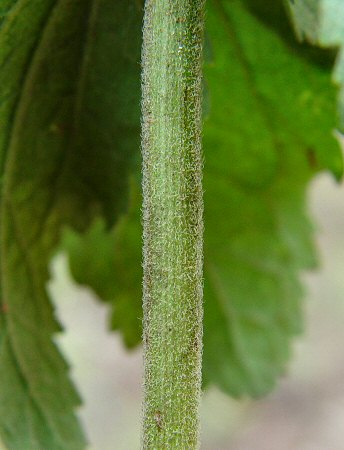
Leaves:
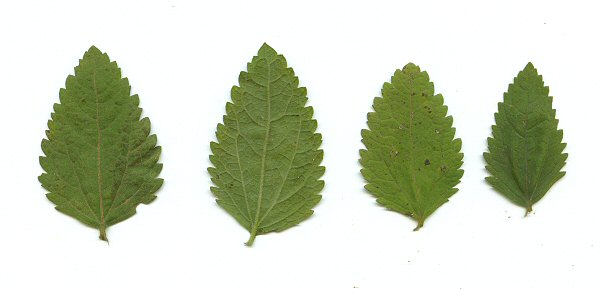
Inflorescence:
N/A
Involucre:
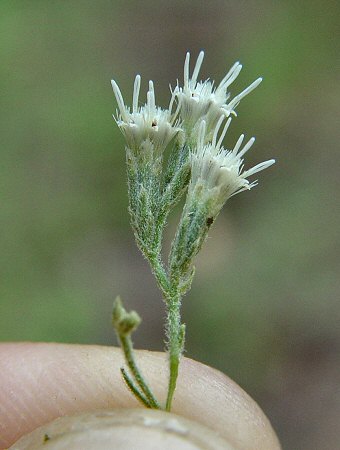
Ray flowers:
Absent.
Disk flowers:
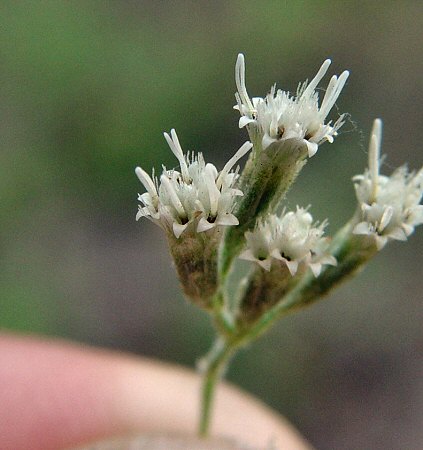 Close-up of flowers.
Close-up of flowers.
Flowering – July – October.
Habitat – Woodlands, pine barrens, savannahs, flatwoods, bogs.
Origin – Native to North America.
Other information – This showy species can be found throughout much of Alabama. The plant can be identified by its densely pubescent stems and ovate to rotund leaves.
Two varieties occur in Alabama. Variety rotundifolium has leaves which are rhombic ovate, 3-7.5cm long, and 2.5-6cm broad. Variety ovatum has leaves which are ovate, 4-9cm long, and 2.5-6.5cm broad. The varieties are sometimes hard to distinguish.
The species epithet rotundifolium is derived from the Latin “rotund” meaning “round” and “foli(um)” meaning “leaf.”
The genus name Eupatorium was given in honor of Mithridates VI of Pontus (132BC – 63BC), also called Eupator Dionysius. Mithridates VI was the son of Mithridates V of Pontus (called Euergetes). Mithridates VI had many brothers, whom he killed to clear his path to the throne, and a sister, whom he married.
Mithridates VI is believed to have had a tremendous memory. It is said he spoke 25 different languages. It is also believed that Mithridates sought to strengthen himself against poisoning by taking less than lethal doses of poison on a regular basis. This practice came to be known as mithridatism. A universal antidote for a poison is sometimes referred to as a mithridate. Unfortunately for Mithridates, the practice of taking poisons actually worked against him in the end. During the 3rd Mithridatic War, Pompey the Great defeated Mithridates. Mithridates tried to poison himself instead of being captured but was unsuccessful becasue he had become tolerant of all the known poisons of his day. He instead had to stab himself with his own sword.
This strange ending of Mithridates’ life is chronicled in a play called Mithridates, written in 1673 by Jean Racine. Mozart also wrote one of his first operas about the subject in 1770, Mitridate, re di Ponto.
Alabama Distribution:
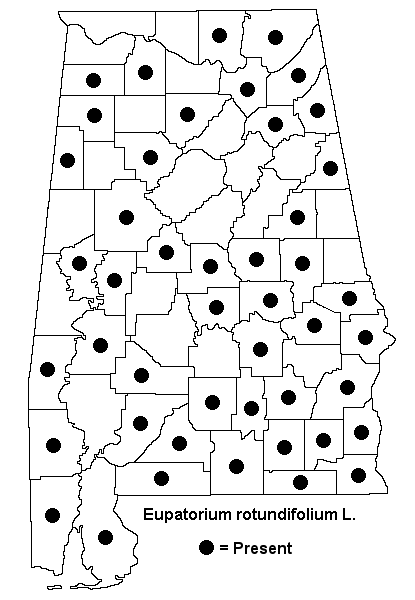
Photographs taken off Lee Rd 54, Lee County, MO., 8-31-04.

